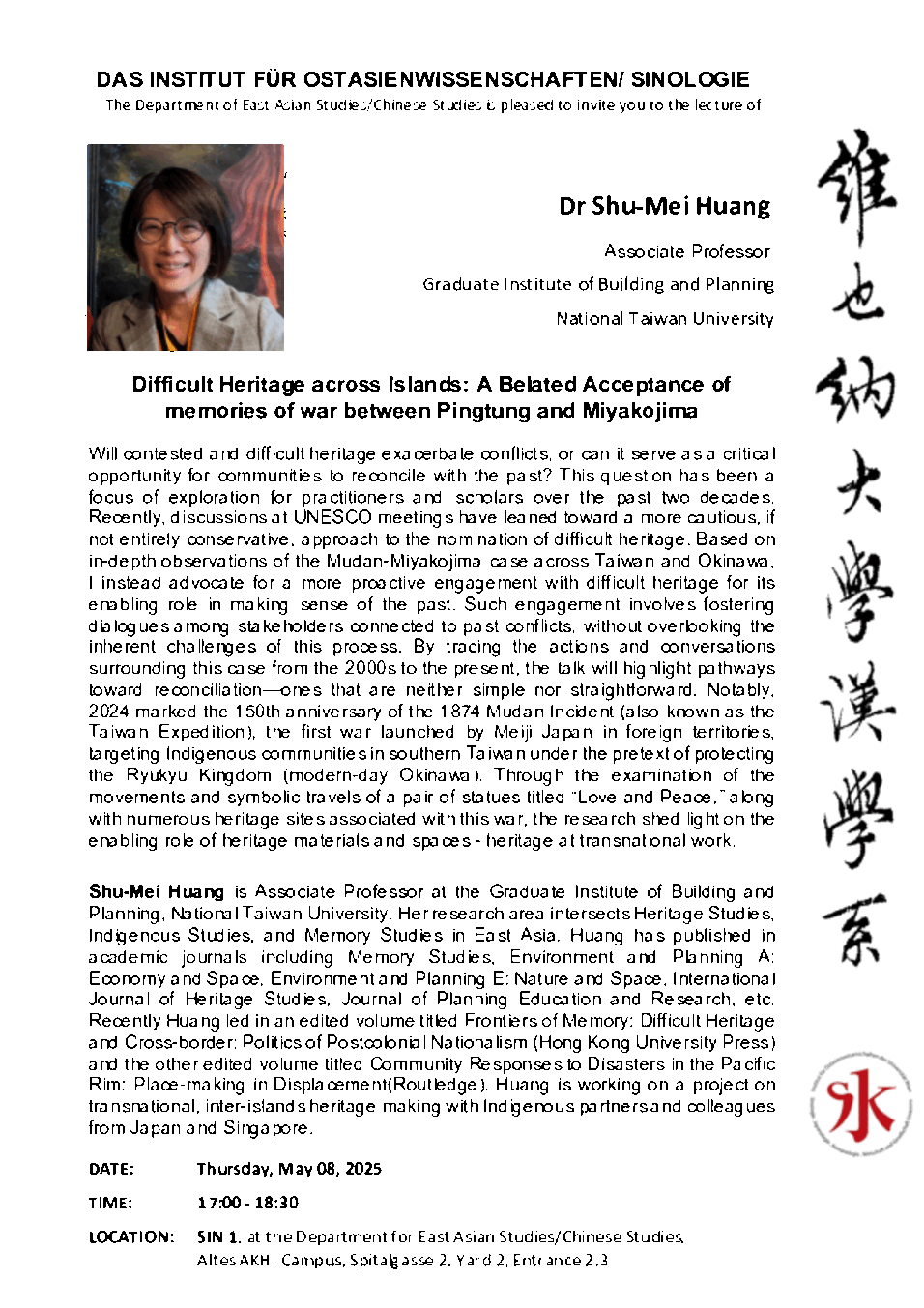Will contested and difficult heritage exacerbate conflicts, or can it serve as a critical opportunity for communities to reconcile with the past? This question has been a focus of exploration for practitioners and scholars over the past two decades. Recently, discussions at UNESCO meetings have leaned toward a more cautious, if not entirely conservative, approach to the nomination of difficult heritage. Based on in-depth observations of the Mudan-Miyakojima case across Taiwan and Okinawa, I instead advocate for a more proactive engagement with difficult heritage for its enabling role in making sense of the past. Such engagement involves fostering dialogues among stakeholders connected to past conflicts, without overlooking the inherent challenges of this process. By tracing the actions and conversations surrounding this case from the 2000s to the present, the talk will highlight pathways toward reconciliation—ones that are neither simple nor straightforward. Notably, 2024 marked the 150th anniversary of the 1874 Mudan Incident (also known as the Taiwan Expedition), the first war launched by Meiji Japan in foreign territories, targeting Indigenous communities in southern Taiwan under the pretext of protecting the Ryukyu Kingdom (modern-day Okinawa). Through the examination of the movements and symbolic travels of a pair of statues titled “Love and Peace,” along with numerous heritage sites associated with this war, the research shed light on the enabling role of heritage materials and spaces - heritage at transnational work.
Shu-Mei Huang is Associate Professor at the Graduate Institute of Building and Planning, National Taiwan University. Her research area intersects Heritage Studies, Indigenous Studies, and Memory Studies in East Asia. Huang has published in academic journals including Memory Studies, Environment and Planning A: Economy and Space, Environment and Planning E: Nature and Space, International Journal of Heritage Studies, Journal of Planning Education and Research, etc. Recently Huang led in an edited volume titled Frontiers of Memory: Difficult Heritage and Cross-border: Politics of Postcolonial Nationalism (Hong Kong University Press) and the other edited volume titled Community Responses to Disasters in the Pacific Rim: Place-making in Displacement(Routledge). Huang is working on a project on transnational, inter-islands heritage making with Indigenous partners and colleagues from Japan and Singapore.
For more information, please refer to the attached PDF
DATE: Thursday, May 08, 2025
TIME: 17:00 - 18:30
LOCATION: SIN 1, at the Department for East Asian Studies/Chinese Studies, Altes AKH, Campus, Spitalgasse 2, Yard 2, Entrance 2.3

